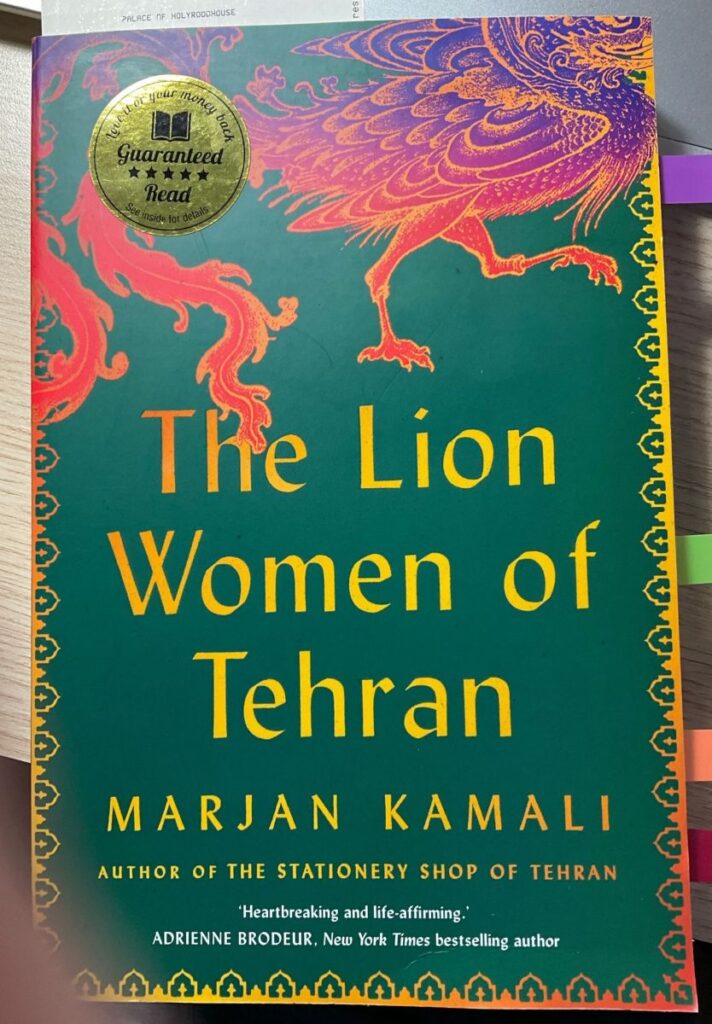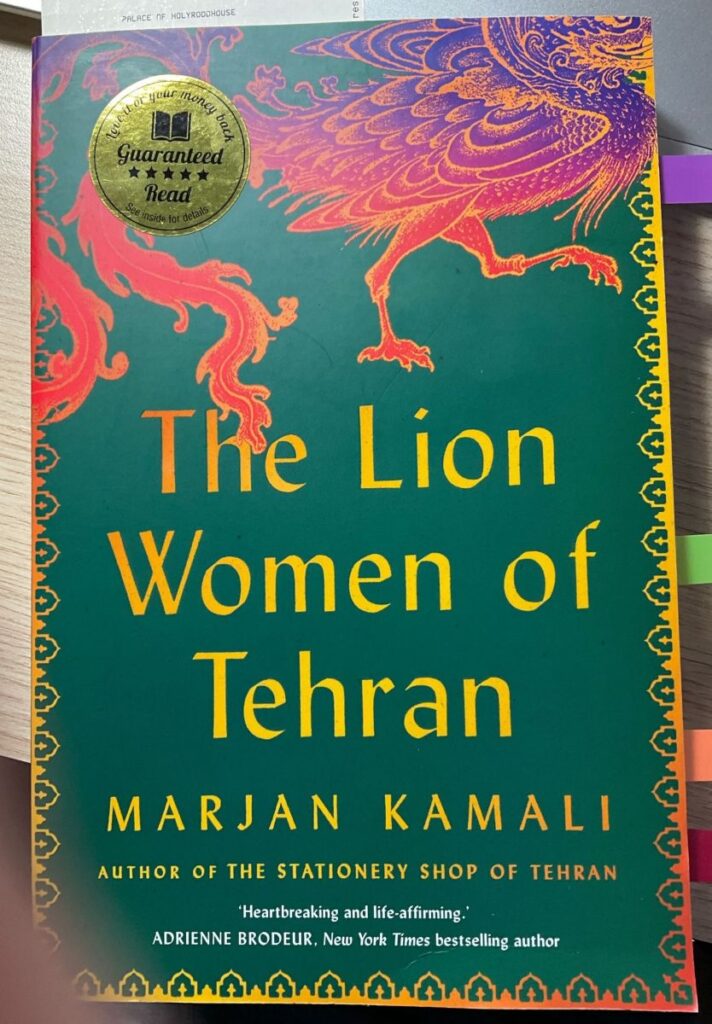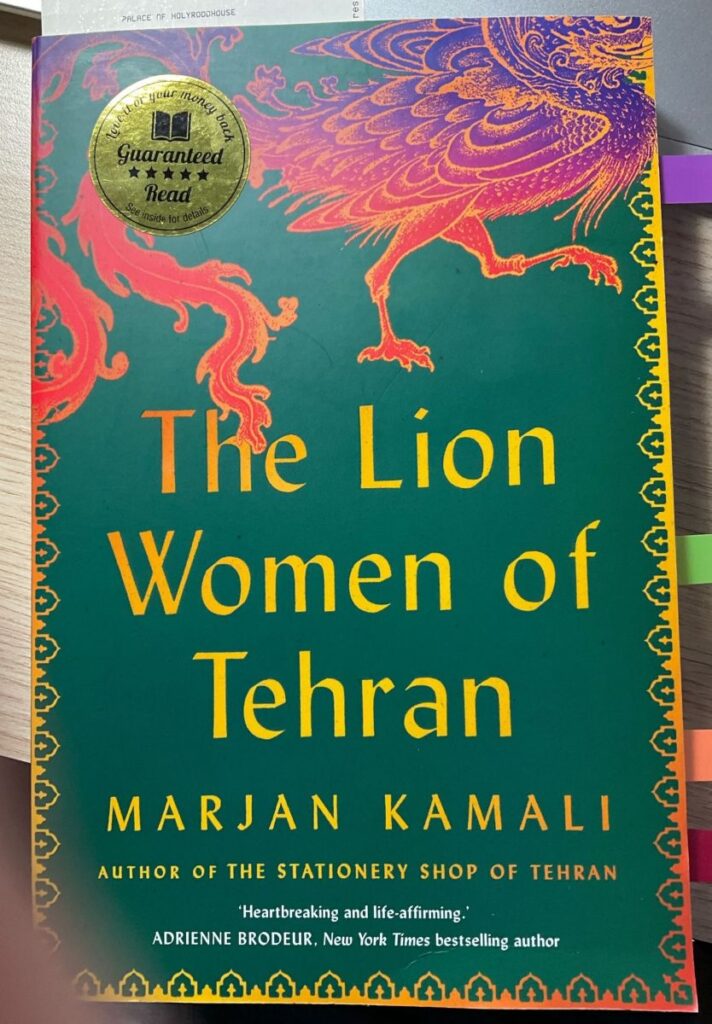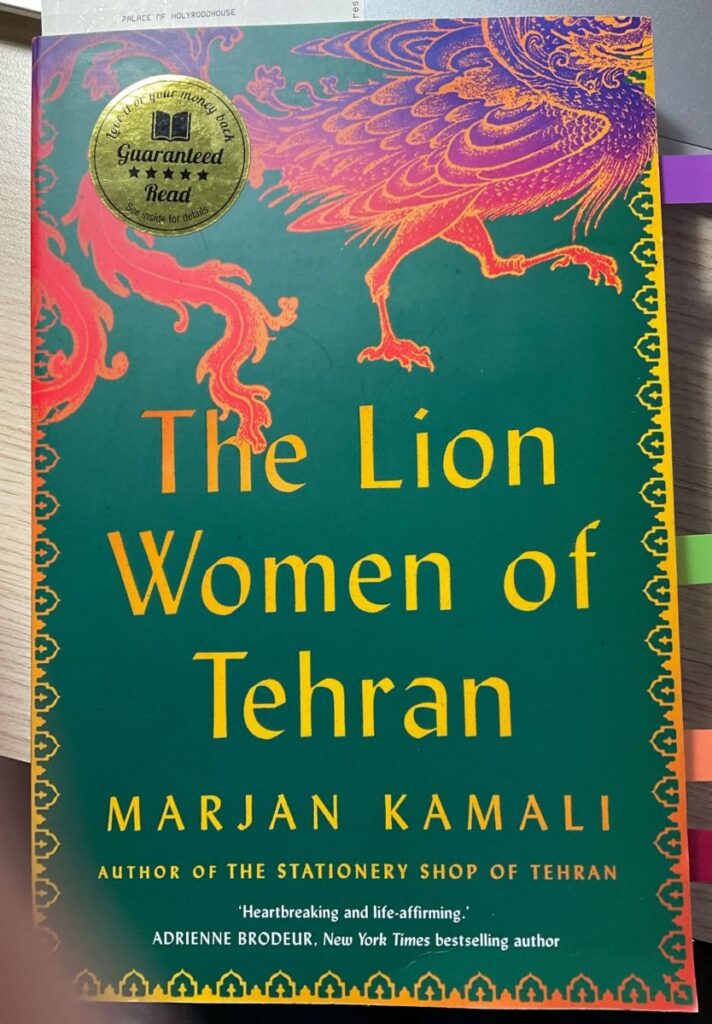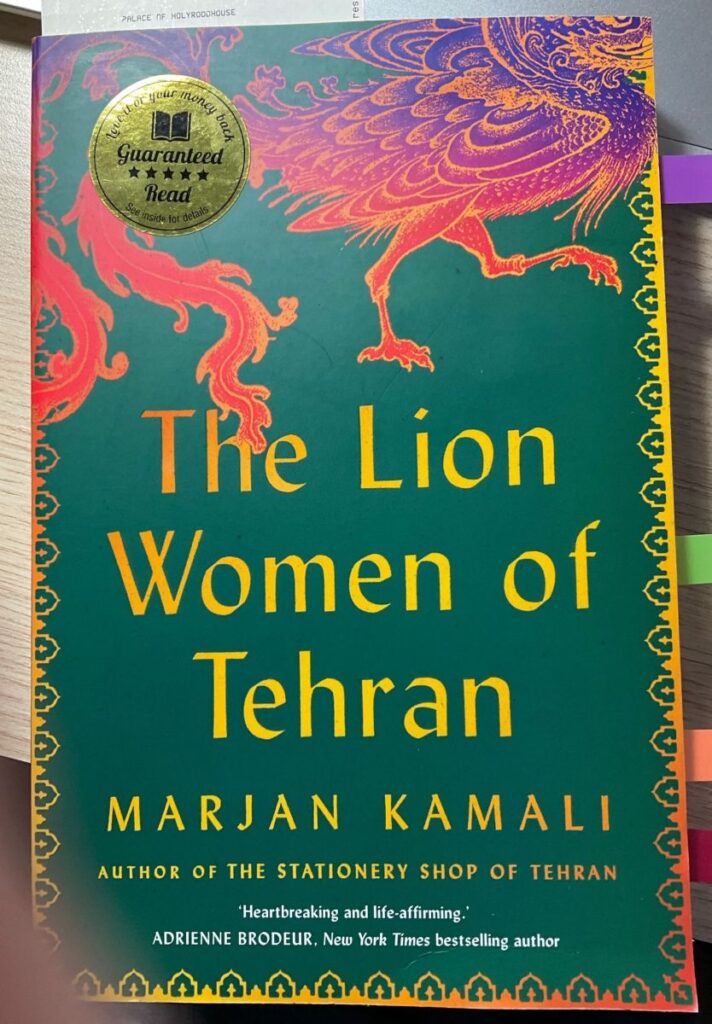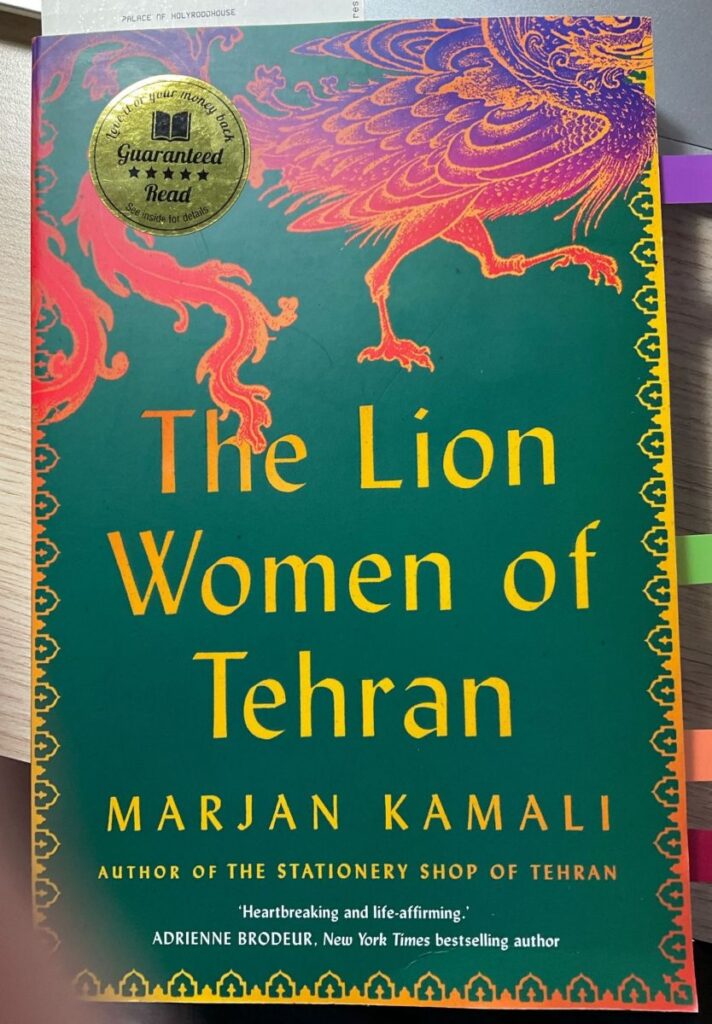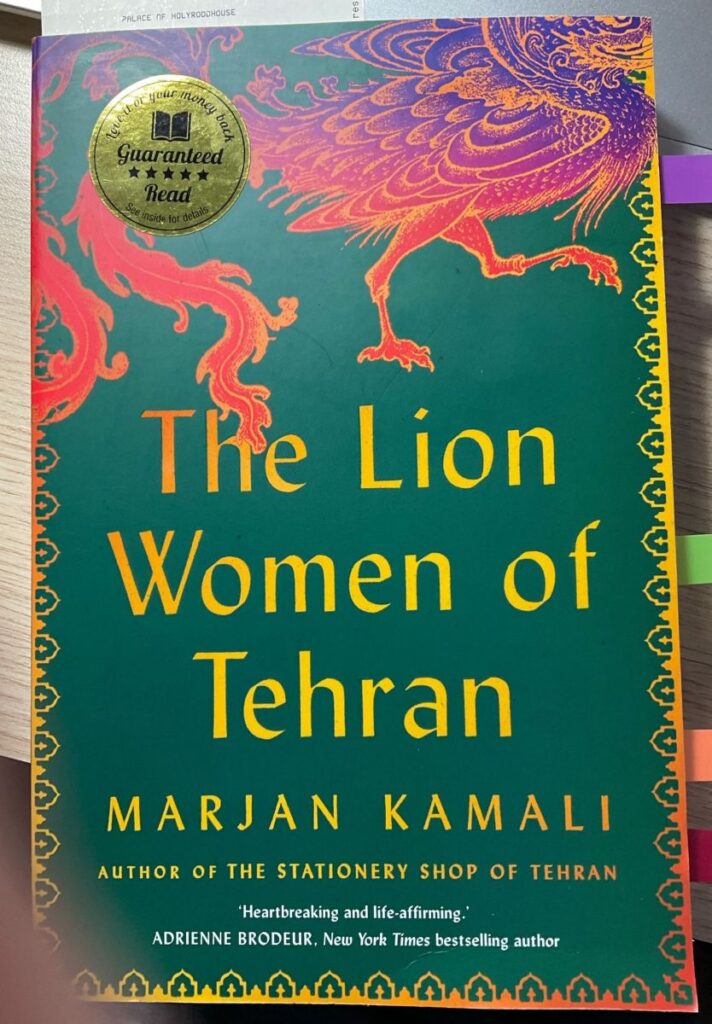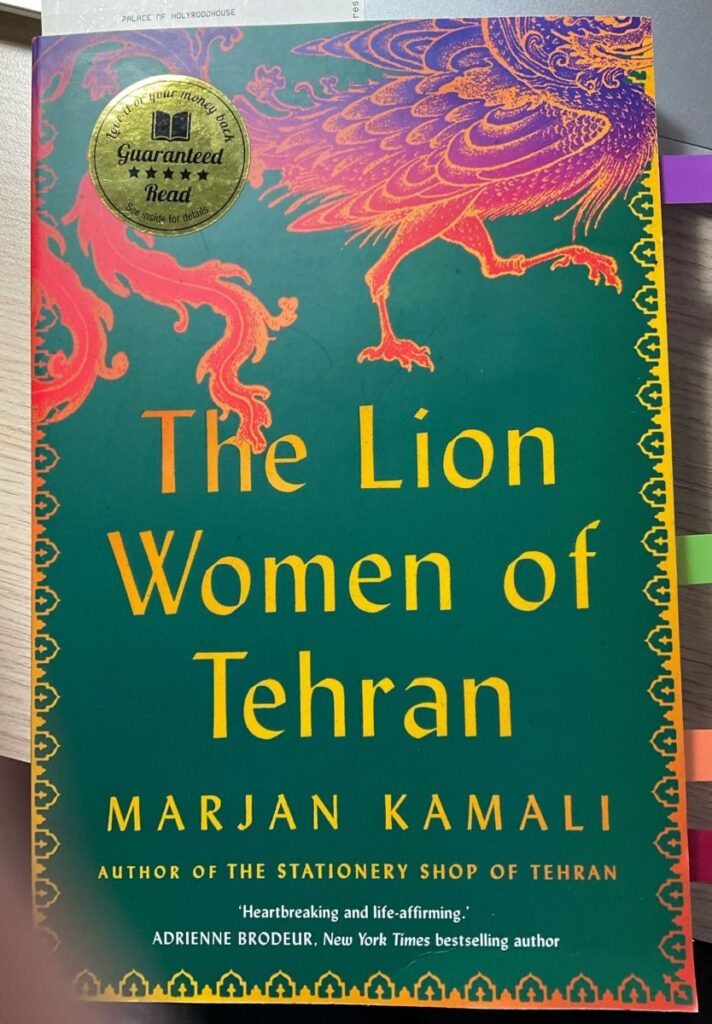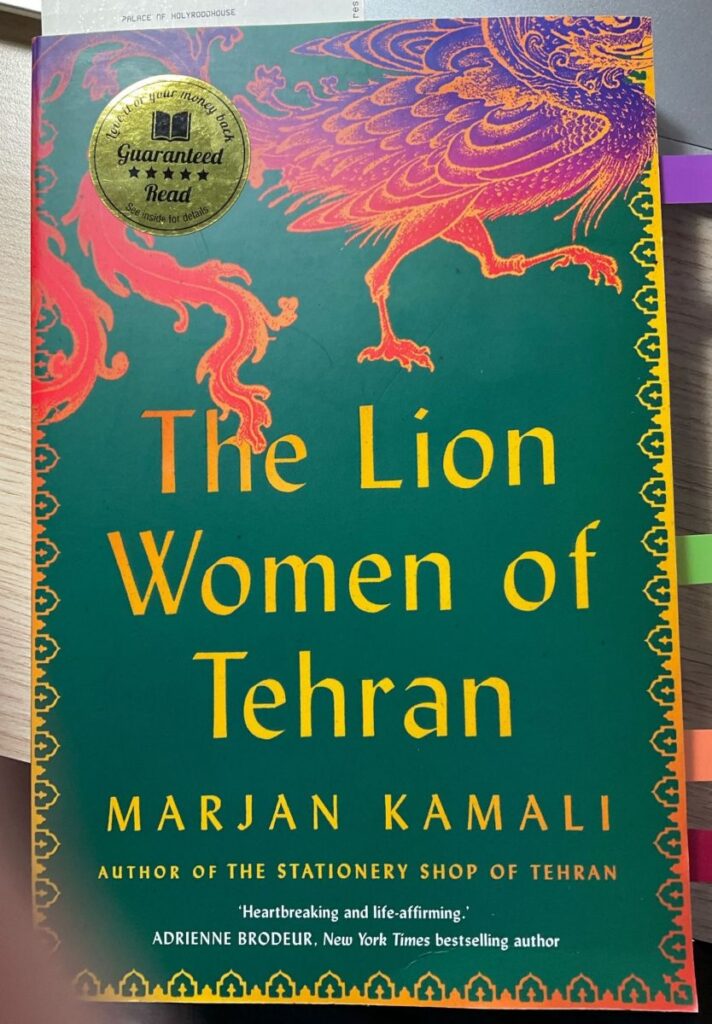So I have finished all of my summaries.
This was the book chosen by my Wednesday (but we meet on a Monday) book club.
Here’s the blurb …
An “evocative read and a powerful portrait of friendship, feminism, and political activism” (People) set against three transformative decades in Tehran, Iran—from nationally bestselling author Marjan Kamali.
In 1950s Tehran, seven-year-old Ellie lives in grand comfort until the untimely death of her father, forcing Ellie and her mother to move to a tiny home downtown. Lonely and bearing the brunt of her mother’s endless grievances, Ellie dreams for a friend to alleviate her isolation.
Luckily, on the first day of school, she meets Homa, a kind girl with a brave and irrepressible spirit. Together, the two girls play games, learn to cook in the stone kitchen of Homa’s warm home, wander through the colorful stalls of the Grand Bazaar, and share their ambitions of becoming “lion women.”
But their happiness is disrupted when Ellie and her mother are afforded the opportunity to return to their previous bourgeois life. Now a popular student at the best girls’ high school in Iran, Ellie’s memories of Homa begin to fade. Years later, however, her sudden reappearance in Ellie’s privileged world alters the course of both of their lives.
Together, the two young women come of age and pursue their own goals for meaningful futures. But as the political turmoil in Iran builds to a breaking point, one earth-shattering betrayal will have enormous consequences.
I have spent a lot of time with this novel. I read each chapter twice and wrote summaries. For me this novel was about friendship, feminism, loyalty, and betrayal. The structure of the novel is very good. Different time periods and different points of view. This creates perspective – you see the same events in a different light. I think it could have been a bit tighter, a few less scenes in every time period. However, it should be widely read to bring the plight of the Iranian people to a bigger audience (and not just see them as part of the ‘axis of evil’). And also to appreciate how the British and Americans interfered in the government of the country to suit their national interests (that’s a problem that has come home to roost).
I know very little about Iran. I enjoyed all of the descriptions of Iranian culture. And how, with the Shah, women had some rights and were encouraged to be educated. It seemed to be quite a secular society. And now, I think they must be some of the most oppressed women in the world. It is very disheartening.
A review.

